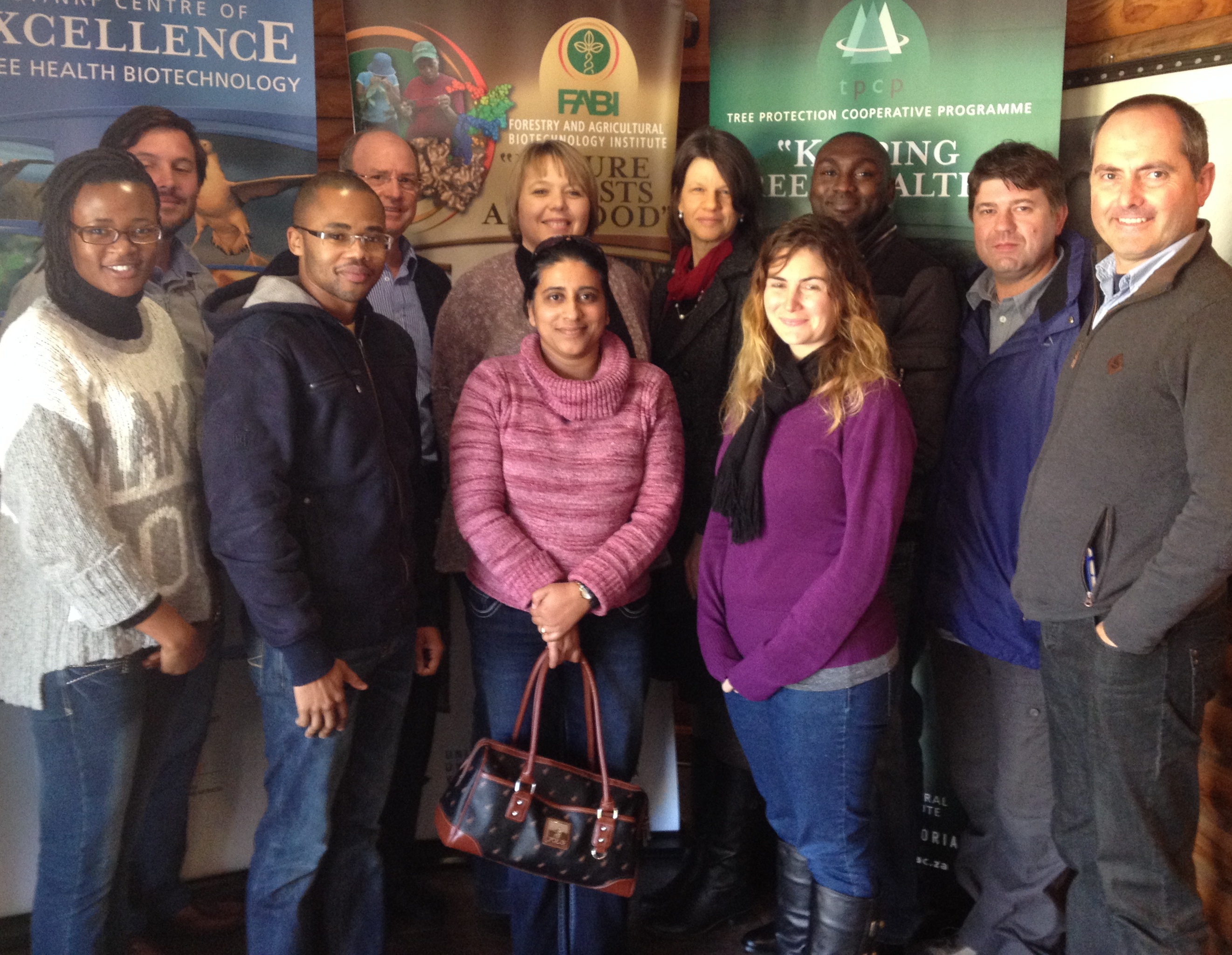SAASTA officials visit FABI in bid to assist with science communication 2014-06-19
On 19 June 2013 a correspondence piece, entitled Young scientists: Public engagement should start early, written by Prof Bernard Slippers of FABI, was published in Nature. In this letter Prof Slippers argued that "public scepticism about science... is standing in the way of implementing sustainable technologies that could solve pressing global issues" and this is to a large extent the result of poor communication between scientists, the media and the general public. He suggested that the place to start training scientists in this social responsibility is at the postgraduate level.
Is it pure coincidence then that one year later, on June 19th 2014, a meeting was called in FABI with the improvement of science communication as its theme? The meeting was prompted by a visit to FABI by Dr Manjusha Sunil, Programme Coordinator of the Public Understanding of Biotechnology (PUB) programme at the South African Agency for Science and Technology Advancement (SAASTA). SAASTA is a business unit of the National Research Foundation (NRF) tasked with the advancement of public awareness, appreciation and engagement of science, engineering and technology in South Africa. Dr Sunil was accompanied by Mr Nana Boaduo, professional officer at the National Research Foundation (NRF) tasked with Research Chairs and Centres of Excellence (RCCE). They met with several staff and student members of FABI with an interest in science communication to explore possible areas where PUB and FABI can collaborate, with the specific aim to promote the public understanding of research conducted in FABI. Several areas of possible collaboration were identified, including:
1) The presentation of science communication workshops by PUB officials to FABI staff and students. We hope that the first such workshop will be presented in collaboration with the CTHB programme in FABI during the latter half of this year.
2) Resource development, which would involve established researchers acting as reviewers for content accuracy of material to be released for publication.
3) A Young Writers Initiative, where PhD candidates and Post Doctoral fellows who have done the science communication training, can write articles on different topics of biotechnology (with some remuneration!).
4) PUB might assist with providing a media office and sponsor the travel of a few science journalists to conferences and/or workshops presented in FABI or by FABIans.
5) Involving scientists/researchers in dialogue sessions such as Media Round Tables and Critical Thinkers Fora.
The meeting has certainly served to enthuse the FABIans present to become more involved in science communication, and we look forward to collaborating with PUB to achieve this goal.
Photo: Attendees of the FABI-PUB meeting about science cummunication. Back, from left to right, Dr Casper Crous, Prof Mike Wingfield, Prof Emma Steenkamp, Ms Heidi Fysh, Mr Nana Boaduo (NRF), Dr Martin Coetzee. Front: Ms Tebogo Letsoalo, Mr Osmond Mlonyeni, Dr Manjusha Sunil (SAASTA-PUB), Ms Amy Wooding, Dr Wilhelm de Beer.


